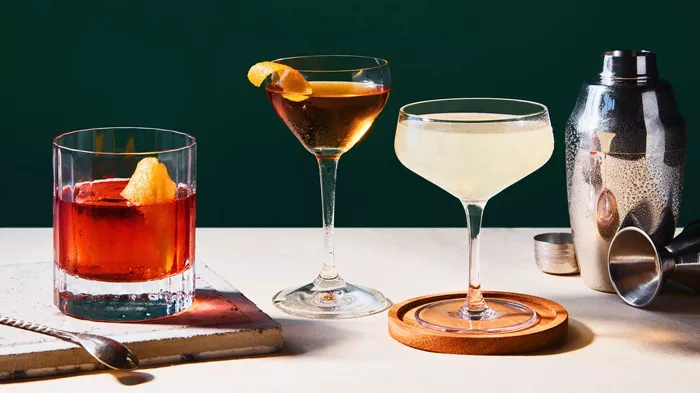In the world of beverages and chemistry, the term “spirit” often invokes images of potent alcoholic drinks. However, a common misconception exists regarding whether spirit itself is synonymous with pure alcohol. In this article, we delve into the intricacies of spirits and their composition to unravel the truth behind the myth of whether spirit is indeed a pure form of alcohol.
Understanding the Basics: What is Spirit?
To begin our exploration, it’s crucial to establish a clear definition of what we mean by “spirit.” In the realm of alcoholic beverages, the term typically refers to distilled alcoholic beverages with a high alcohol content. Examples of spirits include vodka, gin, rum, whiskey, and tequila. However, it’s important to note that while spirits contain alcohol, they are not pure alcohol in the sense of being entirely composed of ethanol.
The Composition of Spirits: More Than Just Alcohol
Contrary to popular belief, spirits are not composed solely of alcohol. While ethanol is the primary component responsible for their intoxicating effects, spirits also contain various other substances that contribute to their flavor, aroma, and overall character. These include water, congeners, and other organic compounds derived from the ingredients used in their production.
Is Spirit a Pure Alcohol? Debunking the Myth
Now, let’s address the pressing question: is spirit a pure alcohol? The answer is a resounding no. While spirits do contain alcohol, they are not pure ethanol. Instead, they are complex mixtures comprising ethanol along with water and other organic compounds. The alcohol content of spirits typically ranges from 40% to 60% by volume, with the remainder consisting of water and congeners.
The Role of Distillation: Concentrating Alcohol
Distillation plays a pivotal role in the production of spirits, allowing for the concentration of alcohol through the separation of ethanol from water and other impurities. However, even after distillation, spirits are not considered pure alcohol. While the distillation process removes some impurities, it does not eliminate all non-alcoholic components present in the original fermented liquid.
Variety in Spirits: Different Ingredients, Different Flavors
One of the fascinating aspects of spirits is the vast diversity of flavors and characteristics they exhibit. This diversity stems from the varied ingredients and production methods employed in their making. For example, whiskey is typically made from fermented grains, while rum is derived from sugarcane or molasses. Each type of spirit has its own unique flavor profile, influenced by factors such as aging, maturation, and blending techniques.
See Also: what type of tequila for margaritas
Regulatory Standards: Ensuring Quality and Safety
To maintain consistency and quality within the spirits industry, regulatory standards are in place to govern the production, labeling, and sale of alcoholic beverages. These standards specify criteria such as minimum alcohol content, labeling requirements, and permissible additives. Compliance with these standards helps ensure that consumers receive products that meet certain quality and safety benchmarks.
Ethanol: The Primary Alcohol in Spirits
While spirits are not pure alcohol, ethanol remains the primary type of alcohol present in these beverages. Ethanol, also known as ethyl alcohol, is a volatile, flammable liquid that is the active ingredient responsible for the intoxicating effects of alcoholic beverages. It is produced through the fermentation of sugars by yeast and can be further concentrated through distillation.
Water: Diluting Spirits for Consumption
In addition to ethanol, water is a crucial component of spirits, constituting a significant portion of their overall composition. Water is often added to spirits during the production process to dilute the high alcohol content to a more palatable level. This dilution not only reduces the intensity of the alcohol but also helps to balance the flavors and aromas of the final product.
Congeners: The Flavorful Impurities
Congeners are a group of organic compounds that contribute to the flavor, aroma, and color of spirits. These compounds are formed during the fermentation and aging processes and include substances such as esters, aldehydes, and higher alcohols. While congeners add complexity to spirits, excessive levels can contribute to hangovers and other adverse effects.
The Myth of Pure Alcohol: Dispelling Misconceptions
In summary, while the term “spirit” is often associated with alcoholic beverages, it is not synonymous with pure alcohol. Spirits are complex mixtures containing ethanol along with water and other organic compounds. The production of spirits involves processes such as fermentation, distillation, and aging, which contribute to their unique characteristics and flavors. Understanding the composition of spirits is essential for appreciating the diversity and complexity of these beloved beverages.
Conclusion: Appreciating the Complexity of Spirits
In conclusion, the myth that spirit is a pure form of alcohol is debunked upon closer examination of its composition and production processes. While spirits do contain alcohol, they are complex mixtures comprised of ethanol, water, congeners, and other organic compounds. By understanding the role of each component, consumers can better appreciate the diversity and richness of the spirits they enjoy. So, the next time you raise a glass of your favorite spirit, remember that it’s more than just pure alcohol—it’s a symphony of flavors and aromas crafted through centuries of tradition and innovation. Cheers!


